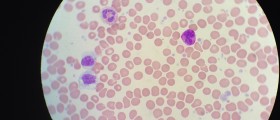
Mantle Cell Lymphoma
Mantle Cell Lymphoma (or MCL) is one of the rarest types ofnon-Hodgkin lymphomas. This is a B-cell lymphoma that appears on the mantlezone of the lymph nodes. It is causing the lymph cells to divide in earlystages of the development, so they can’t defend the body from the diseases. Cancercould spread to the other parts of the body, including gastrointestinal (GI) tract,bone marrow, liver, and spleen.
There is no identified cause of this medical problem and patientsdo not tend to have genetic predisposition to MCL.
This medical condition is more common in people over 50, andmen are 3 times more likely to develop MCL than women. The condition is provendifficult for the treatment and patients usually survive 3 to 6 years with thisdiagnosis. In the United States, thereare about 15.000 people suffering from this condition.
Stages of MCL
Mantle cell lymphoma is characterized by the symptomssimilar to other lymphomas, including: swelling of the lymph nodes, loss ofweight, poor appetite, profuse night sweating and fever. To establish the exactdiagnose, doctor will take a biopsy of the lymph node and look at it under the microscope.Additional blood tests, PET or CT scans and the bone marrow biopsy may be necessary to reveal theadvancement of the lymphoma in the body.
There are couple of grades of MCL: MCL grade A is thecondition without the common symptoms (night sweating), grade B is the illnesswhich presents itself with the symptoms and grad E is the extranodal MCL. MCLgrade E hasn’t originated in the lymph nodes, but in some other organs of the body.
Mantle cell lymphoma is divided into 4 stages, according tothe extent of the cancer. In stage I cancer affects just the lymph nodes. In thestage II cancer has spread to the lymph groups on the same side of thediaphragm, or it involves the lymph nodes and the spleen. MCL in stage IIIaffects lymph nodes on both sides of the diaphragm, and stage IV MCL includesthe metastasis of the cancer to bone marrow or the liver.
MCL Treatment
The therapy mainly depends on the stages of MCL, but theeffective treatment is yet to be discovered. The common treatment includes the medications used to boostthe immune system and destroy cancer cells. Such medications are interferon andrituximab.
There are also chemotherapy options, such as R-CHOP and FCR.Radiation is used in stages I and II. It may be the only treatment or usedcombined with chemotherapy. For the late stages of the lymphoma, there is an aggressiveprocedure called stem cell therapy.
Some clinical studies are stillongoing, to find the treatment for this medical condition. One of these potentialtreatments is Zevalin, the radioimmunotherapy.

















Your thoughts on this
Loading...